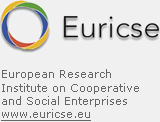During the most recent decades people in the US have reported both a stagnant or even declining subjective well-being, as Easterlin (Easterlin, R.A., 1974. Does economic growth improve the human lot? Some empirical evidence. In: David, P.A., Melvin, W.R. (Eds.), Nations and Households in Economic Growth. Academic Press, New York, pp. 89-125) originally observed, and deterioration in their social and family ties, as Putnam (Putnam, R.D. (2000). Bowling Alone. Simon&Schuster, New York) has claimed. The paper proposes an integrated explanation of these two stylised facts by extending the analysis of the relative income explanation of the Easterlin paradox to social relationships as enjoyable ends of choice. Drawing on the evidence-based results of psychology, the paper constructs a model whose premises are (i) that individuals produce social relationships by means of relational ability, (ii) that this ability is primarily shaped during infancy, and (iii) that commercial pressure on children to consume in competition with others may displace the enjoyment of social relationships. The model is thus also able to explain the case of rich countries, like Sweden, that devote relatively more human and material resources than the US to children and adolescents, and that experience both increasing subjective well-being and improving social capital.
Pugno, M. (2009). The Easterlin paradox and the decline of social capital: An integrated explanation. The Journal of Socio-Economics 38 (4), 590-600








